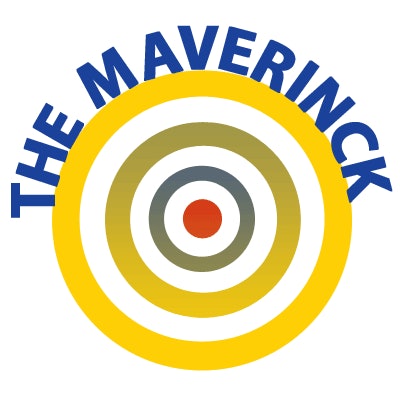
This year the use of telemedicine by video link between doctors and patients, as well as commercial directories and doctor review sites, has exploded. They change some aspects of the medical and human relationships between them.
For instance, Doctolib, a French company bolstered by substantial European and U.S. venture capital, offers its technology and services to every doctor and other healthcare practitioners licensed to practice medicine by the French and German medical chambers. It is an online booking platform and offers teleconsultations as well as a directory of doctors.
Doctolib sees a boom in online video-linked medicine, predicting it will last even after society returns to normal following the COVID-19 outbreak. The company states that it has helped to arrange about 2.5 million consultations in a month, usually surpassing 100,000 a day, as doctors and patients go online to avoid exposing themselves or others to the virus. The numbers are a hundred times higher than at the start of the crisis. The number of doctors using the platform increased tenfold.1
Teleconsultations are mostly used for accidents and emergencies; in psychiatry, psychology, and neurology; general practice and pediatrics; and dermatology. During the period of the pandemic, seeing the doctor on screen as opposed to just talking on the phone might carry an important psychological weight. For radiology, patient-facing teleconsultations are of very limited use.
A recent U.K. review of the use of video links noted, "Novel technological solutions already allow certain physiological parameters -- such as peak expiratory flow rate, heart rate/rhythm, and remote blood sugar levels -- to be monitored remotely ... however, for the time being, teleconsultations in outpatient settings are most likely to be confined to dialogue-based consultations where the need for rigorous physical examination is absent."2
All in all, Doctolib's business model of dedicated and secure teleradiology for video consultations might have a golden future.
Online yellow pages: Finding a doctor
When looking for a doctor nowadays, you don't check the yellow pages of your telephone directory anymore. Instead, you use a search engine on your computer or smartphone. Sooner rather than later, you will land on a review portal for doctors where one finds not only the addresses and opening times of doctors' offices but also ratings.
An example is the German doctors' rating portal Jameda. It is owned by Hubert Burda Media, a highly complex conglomerate of companies and holdings. The company is best known for its DIY fashion magazines and celebrities and tabloid journalism publications, both printed and for some years also digital, among them "Bunte" and "Focus."
Every German physician is listed in Jameda's doctors' directory, whether they want it or not. Such lists are legal if they only contain data such as name, business address, and telephone number or medical discipline. But then Jameda dives into a twilight zone. Their directory contains two classes of doctors. Those who pay for a "premium package" can also add a photo to their profile. Jameda calls them "customers." Then there are those who are listed by default and do not pay ("noncustomers"). Jameda emphasizes that the premium package "has no influence on the doctors' ratings or their place in the Jameda doctor lists."
Data analysis by the German weekly Die Zeit based on several thousand rated entries showed a different picture of this two-tier customer system. Many doctors complain that those who pay do better.3
Fake reviews?
The grading of doctors follows the same scheme as in restaurant reviews -- often logistical or infrastructure factors such as "opening hours," "waiting times," "location," or even "lack of parking spaces" are reason enough to downgrade a medical doctor. This means that doctors are not assessed according to their professional qualifications -- basically, it is a rating of the office environment and the human relation skills of a physician. Objectivity is not wanted and cannot be reached anyway. This opens the floodgates for fake reviews, positive or negative, some of them bought, some of them arranged.
As one radiologist summarized the situation, "I only can say that these reviews are both a curse and a blessing -- many patients are into it! I would never choose my doctor this way -- but many people really do! Often it is those who comment who want to nag anyway -- to simply let off steam. Some patients are always dissatisfied -- and the whole Jameda system lives from them. Some people love these websites, some hate them -- and many do not care."
"Still, patients have threatened me with a bad Jameda entry in order to get unauthorized treatments, examinations, or sick leave. We're becoming even more vulnerable to blackmail than we already are. I have been lucky so far. On the other hand, there are so many portals that rate you. You don't even know that they exist," He added.
The business model and psychology of Jameda and similar rating platforms have been adopted from the sensationalist tabloid press. The more bizarre and nastier the comments, the greater the thrill of readers and the more clicks that drive advertising revenue.
Some time ago, a German court decision made clear that Jameda is not a "neutral information broker" delivering clean directory information and must not provide paying customers with "hidden advantages over nonpaying basic customers." The basic customers included in Jameda's listing without their consent should not be used as an "advertising platform" for premium customers.4
As one doctor stated, "[The portal] seems to me to be highly manipulative and nontransparent. I am not at all surprised that Jameda is regularly being sued."
The list of patients making appointments is extremely valuable. Having such lists and an approximate diagnosis by medical disciplines opens a wide field of interested users. Unfortunately, at least one of these platforms has already been hacked and patient data has been stolen.
Online physician directories and rating websites are marred by negative associations and bear a stigma of blackmail and viciousness -- whether right or wrong, they are tainted with a sneaking suspicion that will never disappear. There is a lack of decency in this business model with its uncomfortable attraction of voyeurism. Therefore, some providers see an attractive market for it. There is something enticing about denouncing somebody anonymously. It reverses the classic balance of power: Vengeance is mine. Or, on the contrary, one can recommend oneself secretly to an unsuspecting public.
In a rampant way, the pandemic has exposed both promises of technologies and problematic applications. While Doctolib delivers an essential service in the time of the pandemic, Jameda and similar platforms exploit the situation by creating infotainment sites without delivering urgently needed positive contributions to healthcare.
Dr. Peter Rinck, PhD, is a professor of radiology and magnetic resonance and has a doctorate in medical history. He is the president of the Council of the Round Table Foundation (TRTF) and the chairman of the board of the Pro Academia Prize.
The comments and observations expressed herein do not necessarily reflect the opinions of AuntMinnieEurope.com, nor should they be construed as an endorsement or admonishment of any particular vendor, analyst, industry consultant, or consulting group.
References
- Doctolib. Doctolib among the top 3 providers of online medical consultations in the world. Press Release. 22 April 2020.
- O'Cathail M, Sivanandan A, Diver C, Patel P, Christian J. The Use of Patient-Facing Teleconsultations in the National Health Service: Scoping Review. JMIR Med Inform. 2020 Mar; 8(3): e15380.
- Fischer T. Zu welchem Arzt würden Sie gehen? Die Zeit 4/2018, 18 January 2018.
- Grundmann S. OLG Köln: Jameda darf seinen Premiumkunden keine verdeckten Vorteile gewähren. 10 January 2020.



















